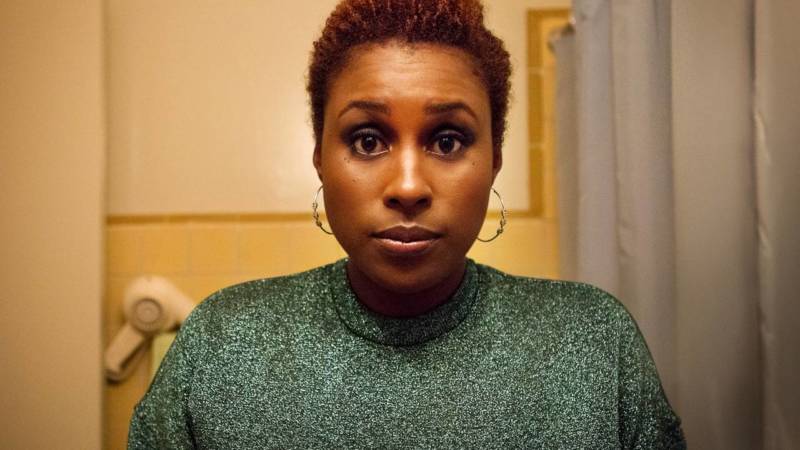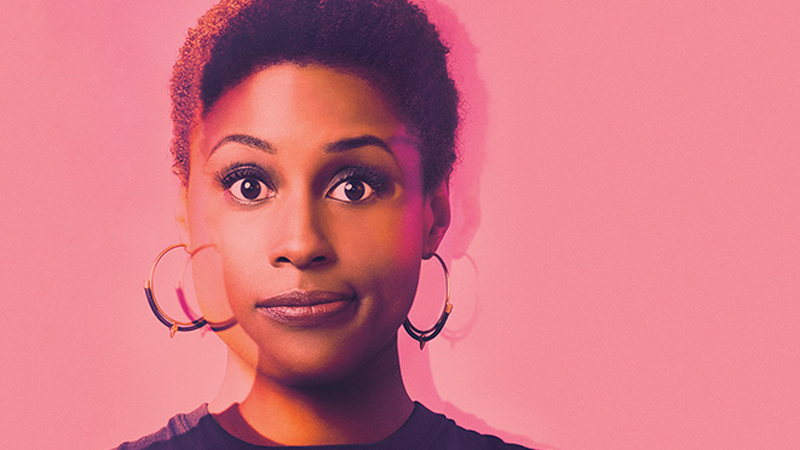The plot is simple and familiar enough — being awkward and aimless in your twenties in “X” metropolis. It seems to be the basis of countless (and often too many) shows in every new fall TV season. But it’s also the plainness of its premise that makes Insecure feel so incredibly groundbreaking.
Yes, color is flourishing on screen, compared to the one-dimensional, stereotypes of television of yore. But most of the current shows casting leads of color are given the go-ahead because of juicy-on-paper plot lines that are meant to ensure a viewing audience. Scandal deals with a steamy affair with the President. How to Get Away With Murder is full of plot-twisting murderous intrigue. Empire traces back-stabbing family politics in the bougie world of a music mogul. The People v. OJ Simpson recreated the drama of the “Trial of the Century.”
Meanwhile, Black-ish, The Carmichael Show and Fresh Off the Boat find humor in the everyday but only according to the rules of the tried-and-true family sitcom, a television institution whose color barrier was broken decades earlier. None of this is an effort to reduce the significance of these shows — they will forever be the trailblazers, the “firsts” in forcing the obsolescence of ethnic caricatures on screen. Every show with “diversity” that’s untainted by stereotypes helps end the perceived uniformity of blackness or brownness or Asian-ness. However, the notion of spotlighting non-white protagonists solely against gimmicky narrative backdrops seems to imply that audiences need to be enticed with fireworks to find interest in characters of color.
 Rae's show stands out for its depiction of colored ordinariness, or more importantly black female ordinariness. Because just as America has black music moguls, it also has funny, educated, and insecure black women just trying to figure things out. This type of narrative sparseness is an exercise in normalization and humanization, and ultimately a shift in how we give voice to color.
Rae's show stands out for its depiction of colored ordinariness, or more importantly black female ordinariness. Because just as America has black music moguls, it also has funny, educated, and insecure black women just trying to figure things out. This type of narrative sparseness is an exercise in normalization and humanization, and ultimately a shift in how we give voice to color.
Insecure is not about glitz and glam, or murder in cold blood. It's about a singular, basic human experience in a particular setting at a particular age — and one partially informed by blackness and black femininity. It's a show about nothing and everything, where humor is derived from poking fun at quotidian micro-aggressions and drama comes from universal anxieties.
It’s Issa trying to figure out what she's doing with her life. Or why her relationship feels stagnant. It’s also Issa having to put up with her well-meaning white boss, who rocks a dashiki while asking her what James Baldwin would do to help kids of color. Or her co-workers asking her, “What's on fleek?”
While the inevitable comparisons to its HBO counterpart Girls are tiresome, diminishing and reductive, they're still a signifier of progress. If a show about a black woman can be broadly categorized in the same genre as a show about four white women just existing in New York, while also being critically commended, that's a sign that representation is starting to level out.
Rae’s success is not entirely isolated. Her show joins the ranks of a few brilliant projects just now being made, in which stories of unadorned humanity are deemed worthy (a.k.a. financially backed) for cultural consumption. Yet even among those few, Insecure stands out in how HBO took a chance on a relatively unknown African-American female newcomer.
Master of None came from veteran star and comic Aziz Ansari. Atlanta is the brainchild of Donald Glover, an already successful rapper and Hollywood writer/actor. Queen Sugar was borne out of a collaboration between the established Ava Duvernay and Oprah, and is currently airing on Oprah’s channel. Rae does have some ties to Hollywood, co-creating the show with Larry Wilmore and once partnering with Shonda Rhimes for a show that fell short of the pilot stage. But in terms of an insider’s résumé, she's ultimately transitioning from modest, DIY YouTube fame.
Insecure hasn't been without its critics. And whatever progress it spells only emphasizes how tragically far behind the industry is in giving opportunities and visibility to other forms of intersectional representation, from queer women of color to the trans community. But it’s a step in the right direction, one that cements the fact that the steps we’ve already made haven't been for naught.



